Advice for Finding Your Forward From the Marie Claire Power Trip
Panelists talk about how the pandemic affected their businesses and brands—and how they made it to the other side.
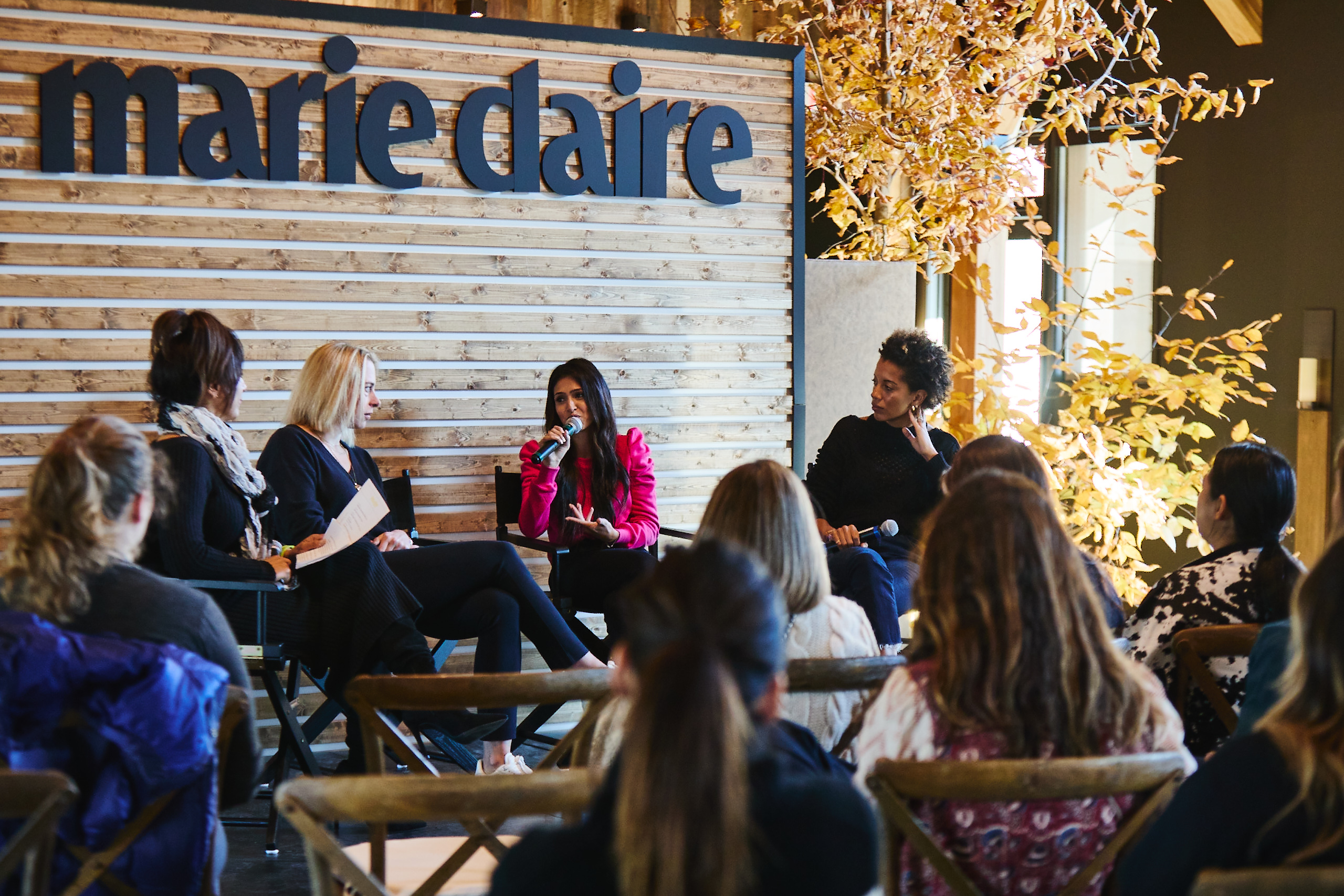
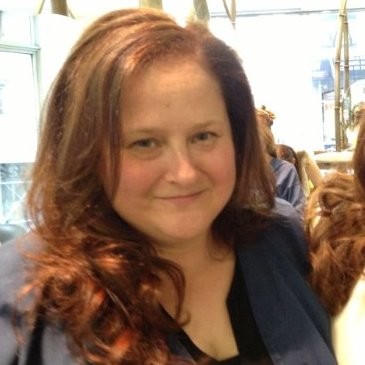
Along with founders and entrepreneurs worldwide (and the rest of us), three powers-that-be in the worlds of tech and fitness, philanthropy and branding, and fashion and style had to weather the epic blindside that was 2020. Michelle Miller, co-host of CBS Saturday Morning, spoke with panelists Catherine St-Laurent, founder of Acora Partners, designer and creative director Carly Cushnie, and ClassPass founder Payal Kadakia at MC's 2021 "Power Trip: Off the Grid" conference at Miraval Berkshires Resort & Spa. They candidly talked success—and the inevitable question it spawns: What’s next?
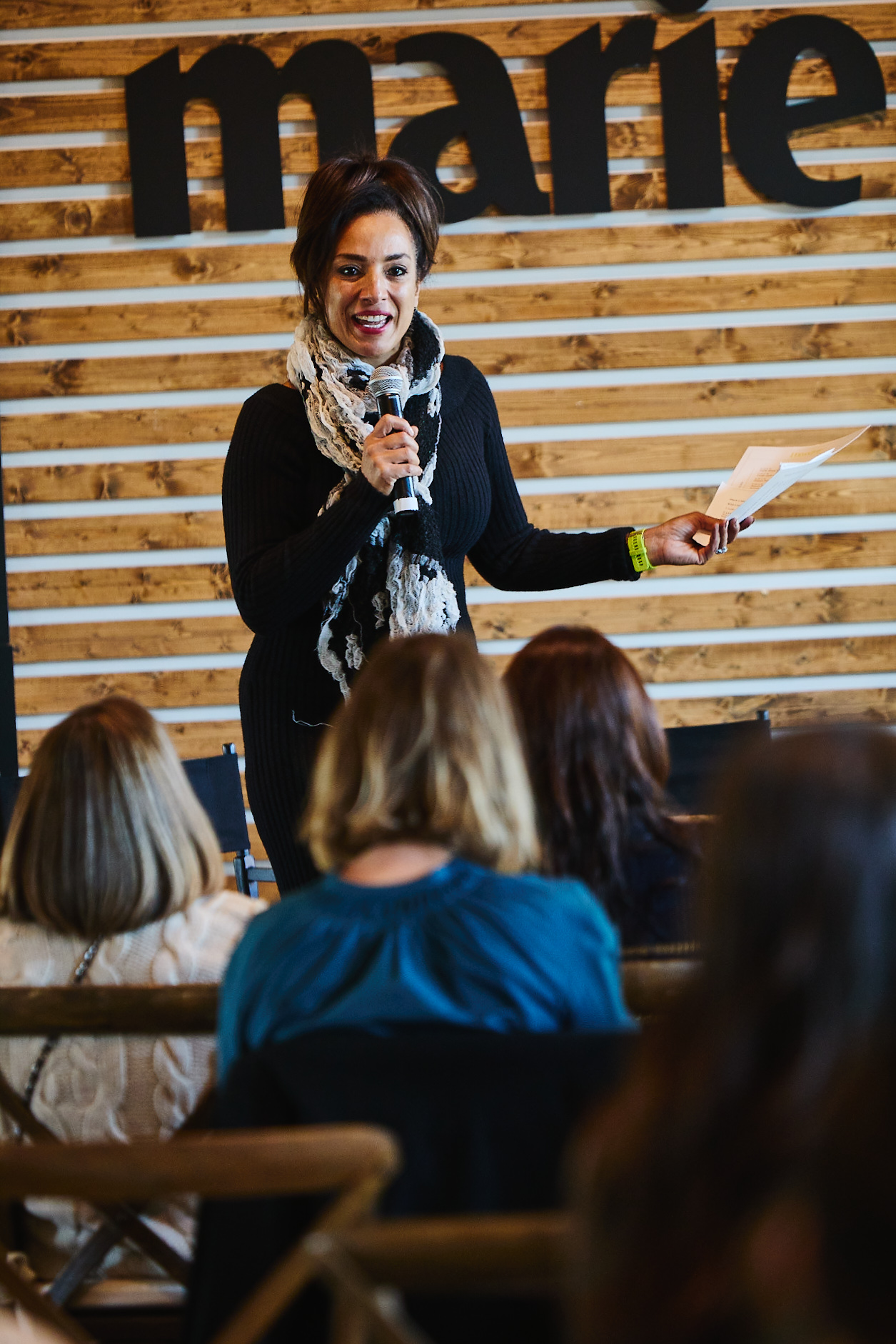
Michelle Miller, co-host of CBS Saturday Morning, led the panelists
Pressing pause on such high-profile careers meant different things to each. For creative director and fashion designer Carly Cushnie, 2020 had her at a crossroads. She felt buoyed by renewed interest in Black-owned brands in the wake of BLM. But then... “At the time right before the pandemic, I was raising capital and was very, very close with a partner and, of course, that ended up falling through when the pandemic started,” she says. “I was also at a point where I was very pregnant with my second child.”
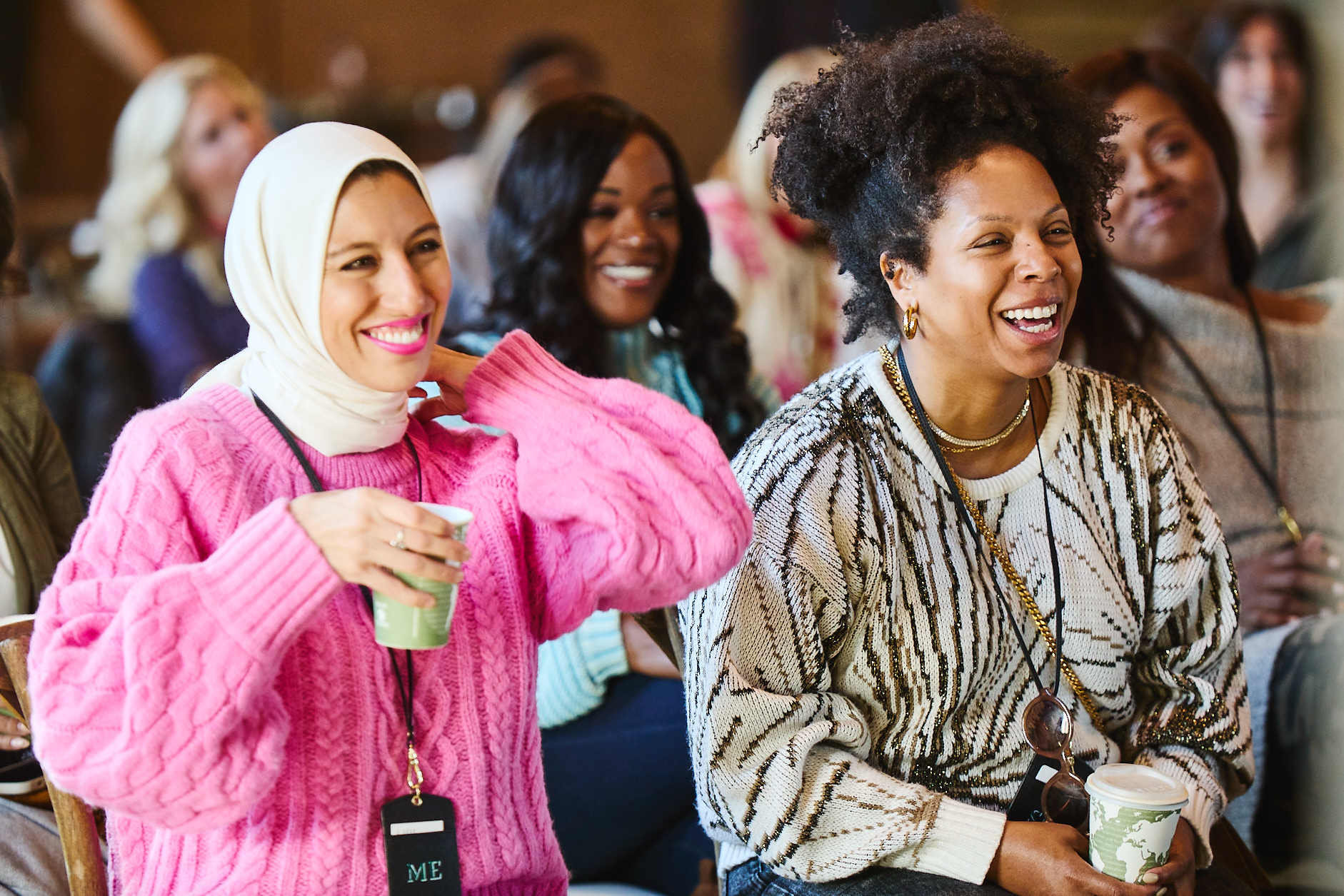
Power Trip attendees heard how founders rolled over the bumps in the business road.
However bright things looked, CUSHNIE for Target had been in the works for a year or so and was moved up in the pandemic sales surge. Businesses always have their highs and lows, she says she realized, as her brand’s pop-y garments jumped into the carts of multitudes of Target shoppers. “Everyone assumes you’re doing great,” she says. “It was a nice hit before we closed the doors.”
She had weathered down times before; what was different? The soul-searching she did told her: “This is not the time to keep pushing through,” she says. “I’ve done that before and made sacrifices. I felt like I’d had fantastic fun. I’d made beautiful things and been super grateful and had super collaborators.” It was time to trust herself. “I realized I’d already, in my head, let go,” she says, “so I thought the best thing for me to do is to close it and I can move on with something else.”
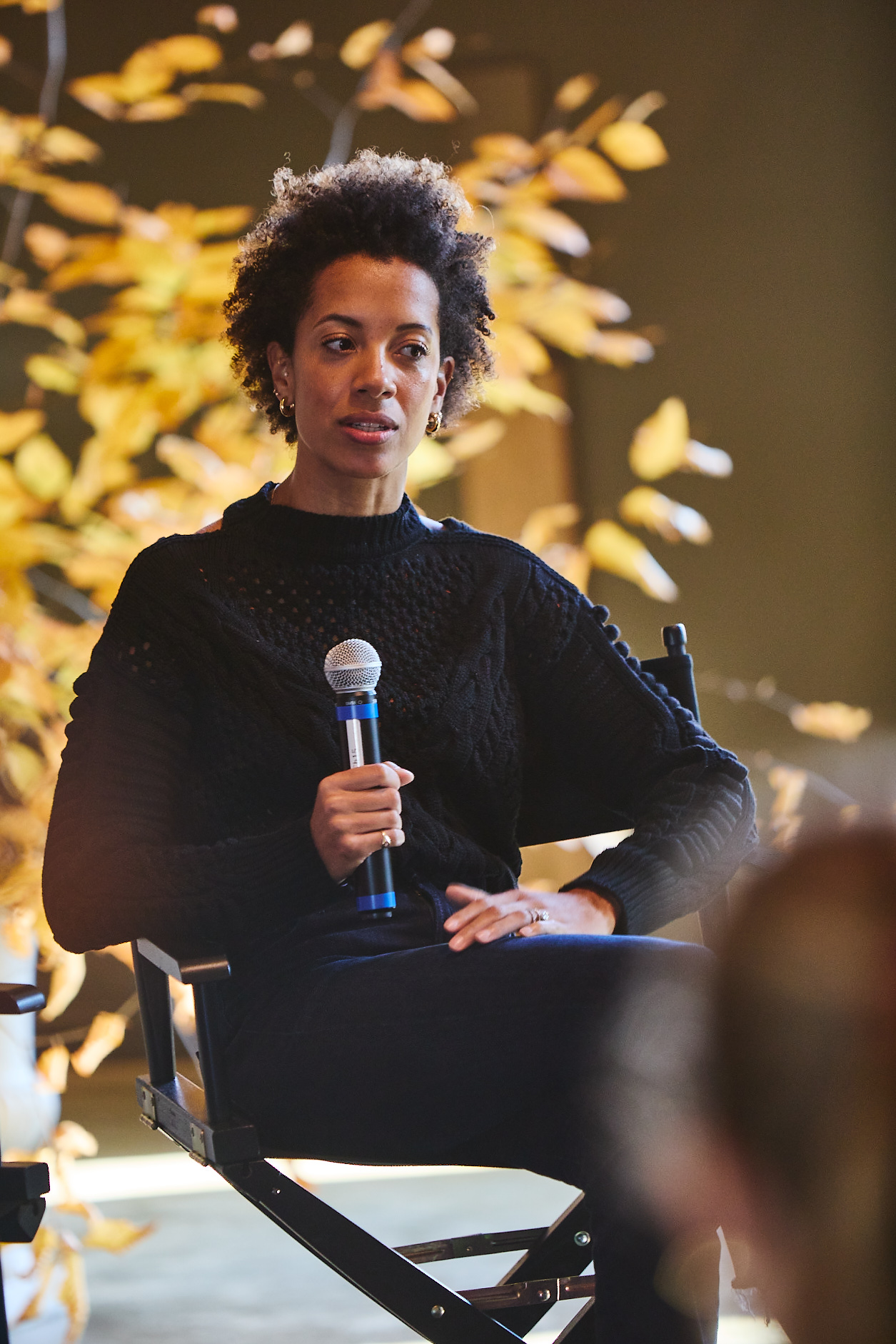
Carly Cushnie talks about the trajectory of her critically-acclaimed brand.
One such something else: a partnership with American Girl dolls that donated profits to Girls Who Code. “It’s such a wonderful brand to work with, so much heritage and it means so much to so many women,” she says. “It’s funny because being English, I didn’t grow up with American Girl. I talked to friends who said ‘I still have my Samantha doll!’ I’m like, ‘Oh really?’” Cushnie looks forward to further growth. “A lot of the creative aspect of it gets lost in the day-to-day of running a company,” she says. “This time away from my company has made me realize how much I love to create, so I do want to be launching something new by the end of next year.”
For Catherine St-Laurent, a few days before her home city of Seattle was dubbed the epicenter of the American COVID pandemic, she left her position at Pivotal Ventures, Melinda Gates’s investment and incubation firm. Why? The Archewell Foundation—Meghan Markle and Prince Harry—had come calling. The Duke and Duchess of Sussex made St-Laurent executive director and also their chief of staff. The opportunity was “surreal” and irresistible. “I’ve learned from some of the best philanthropists and changemakers in the world,” she says, “and one of the things that I took away from all these experiences is [to seize] the opportunity to pay forward and bring that good experience to the next person.” With two toddlers at home during a pandemic, she took on the project of helping the highly-visible philanthropists hone their mission.
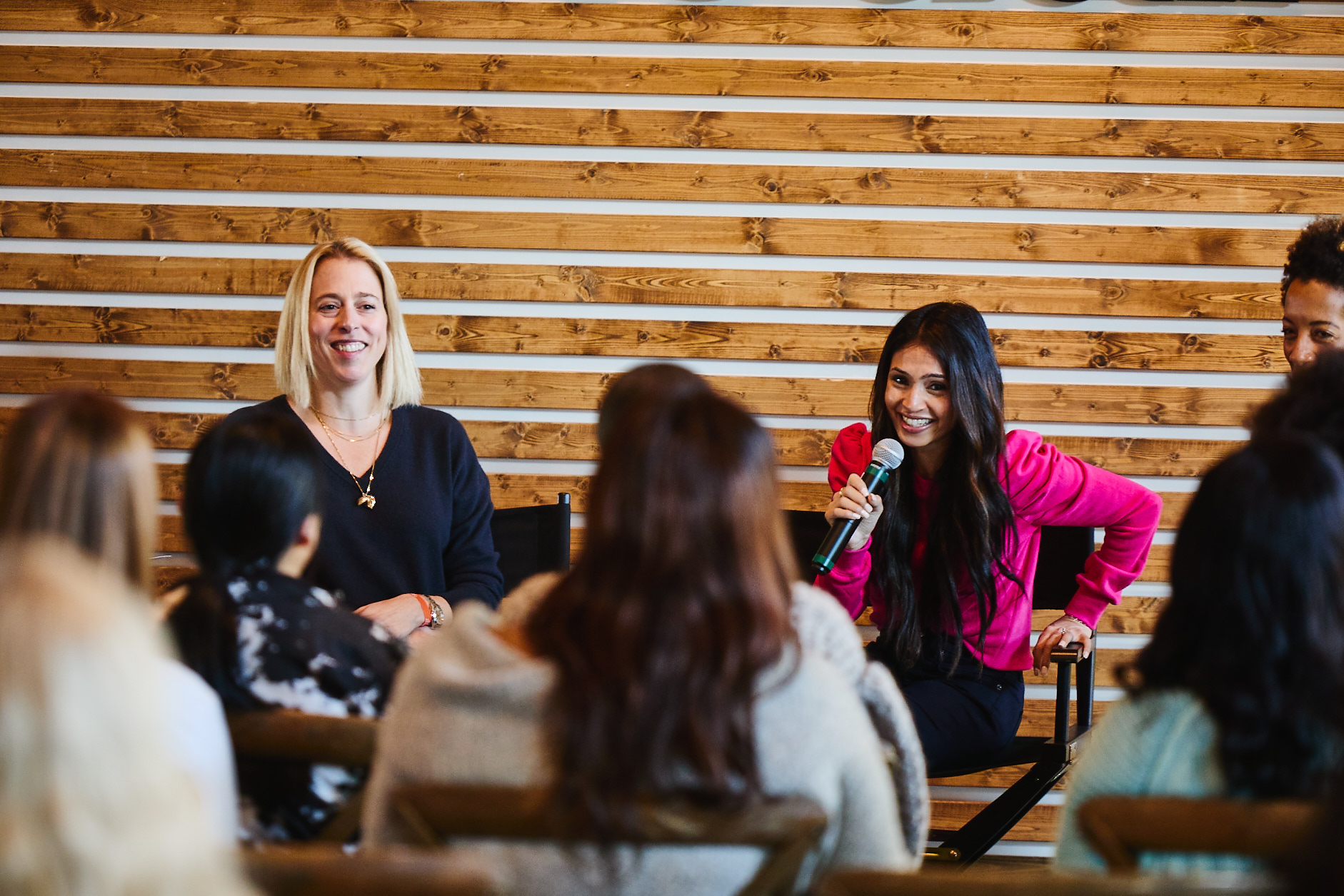
Catherine St-Laurent, left, charts the course she's taken in the world of high-profile philanthropy.
“To me it was important to support two people who had such an ambition to change the world,” she says. Even though the world felt like “it was a house on fire...a hot mess,” she says, “we learned and we listened. The place you start is what matters to you the most. What is the kind of change you want to see? What are the things that are so visceral to you that they wake you up in the night and you have to do something about them?”
Stay In The Know
Get exclusive access to fashion and beauty trends, hot-off-the-press celebrity news, and more.
In the spring of 2021, she went to an advisory role at Archewell. “In the same way I felt drawn to work with [Meghan and Harry],” she says, “I feel a real calling to bring that forward to more people.” She co-founded Acora Partners, a philanthropic advisory firm, to strengthen her social justice impact. “Leadership in that space has looked the same for a long time,” she says, “and I’ve had the privilege and the honor to work with some of the biggest names in that space, but for me it felt like an opportunity to bring everything I’ve learned, the networks I’ve developed to bear, and help close this delta that exists between money that is idling on the sidelines and people doing important work—and not getting that money.” She says, “I thought, Okay, I feel like maybe more change can happen this way, and I took a chance.”
Taking chances is something ClassPass founder Payal Kadakia says she has done pretty much every three years since college. By early 2020, ClassPass had raised $250 million and was valued at $1 billion. “It was this amazing moment,” says Kadakia, who was also pregnant. “And then the pandemic hit; 95 percent of our businesses shut down literally within a week. Our revenue went to a halt. And this was all over the world.” She’s proud of how quickly her team pivoted to digital, she says, “but it doesn’t really replace what our brand has been.”
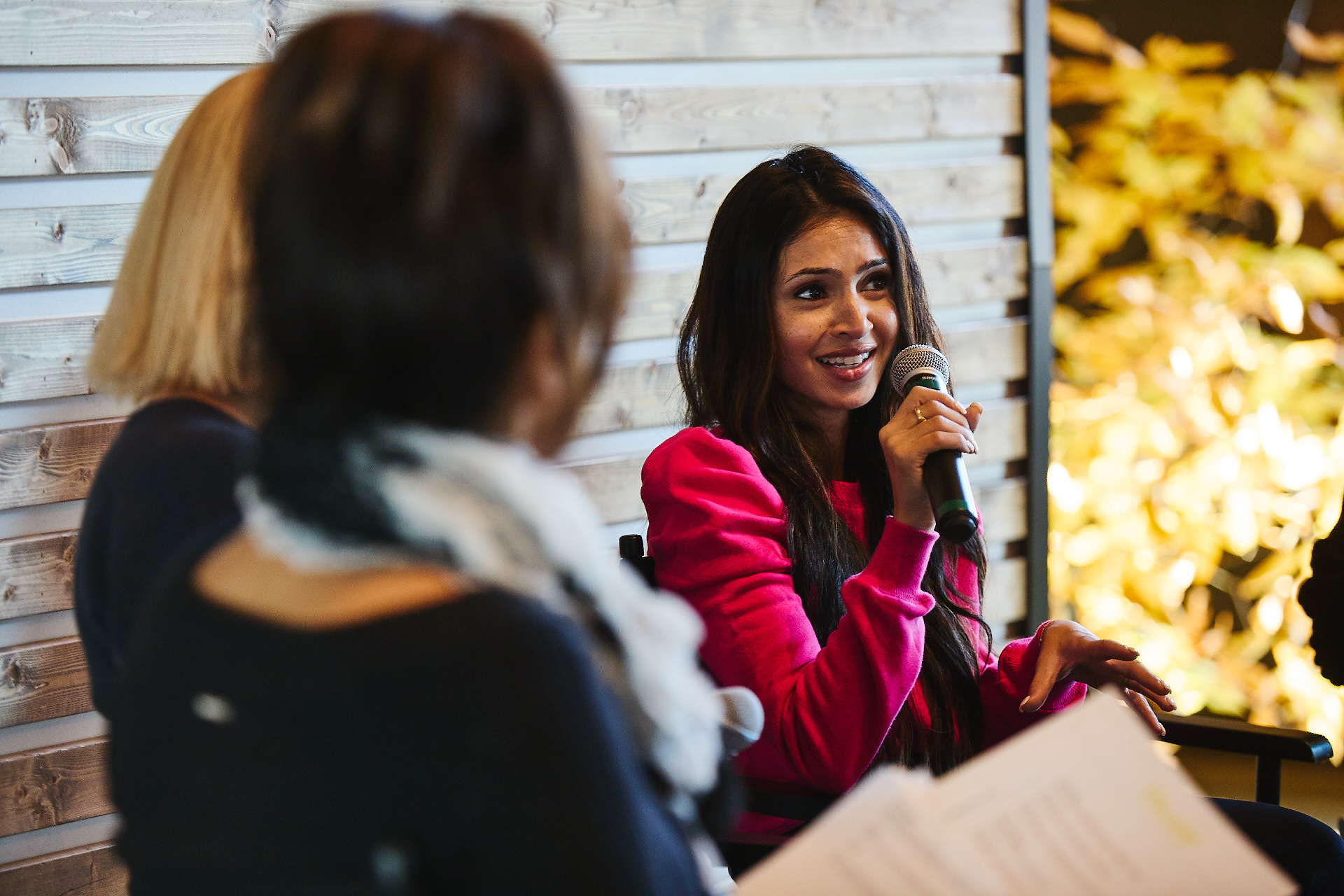
Payal Kadakia tells the crowd about her "bittersweet" business decision.
This was a new kind of uncertainty. “The hardest part of this one has been the anxiety of not having a plan,” she says, “and every three months, we’re like ‘Here’s a new plan of what we’re going to do or what we’re going to be. Are people going to come back in the spring? Are they going to come back in the fall?’ Everything has to go through planning several times.”
The takeaway: “Don’t get complacent and keep being able to make those hard decisions in your life,” says Kadakia. “I feel comfortable charging my own path because I listen to myself. It’s about looking forward and that’s what makes us all very powerful in this room,” she told the attendees. “I really have come back to this idea, and it’s the same reason I started Classpass: for passion and purpose. It’s not about how big it is, it’s about how impactful it is.”
Just as people second-guessed her when, years ago, she left a management consulting firm to perform classical Indian dance (she has since founded The Sa Dance Company), to the outside world, her latest (post-pandemic) pivot may have looked more like a full stop. As ClassPass was acquired by Mindbody, Kadakia decided to step down as executive chairwoman. The media (and pretty much everyone) was surprised about that development for such a prominent “girlboss,” she says, “but that’s not who I was.” It’s “bittersweet,” she says. “It’s crazy to not have this email address that’s literally been my identity for ten years, but it’s also liberating in a way to think about what’s next and to know that there’s so much more ahead.”
Maria Ricapito is a writer who lives in the Hudson Valley.
-
 Tyla's Coachella Outfit Pairs Dolce & Gabbana With Pandora
Tyla's Coachella Outfit Pairs Dolce & Gabbana With PandoraThe singer wore a gold version of the crystal bra made famous by Aaliyah.
By Amy Mackelden Published
-
 How Kate Middleton Is Influencing George's Fashion Choices
How Kate Middleton Is Influencing George's Fashion ChoicesThe future king's smart blazer is straight out of Princess Kate's style playbook.
By Amy Mackelden Published
-
 King Charles "Couldn't" Meet Prince Harry During U.K. Visit
King Charles "Couldn't" Meet Prince Harry During U.K. Visit"It could actually bring down a court case."
By Amy Mackelden Published
-
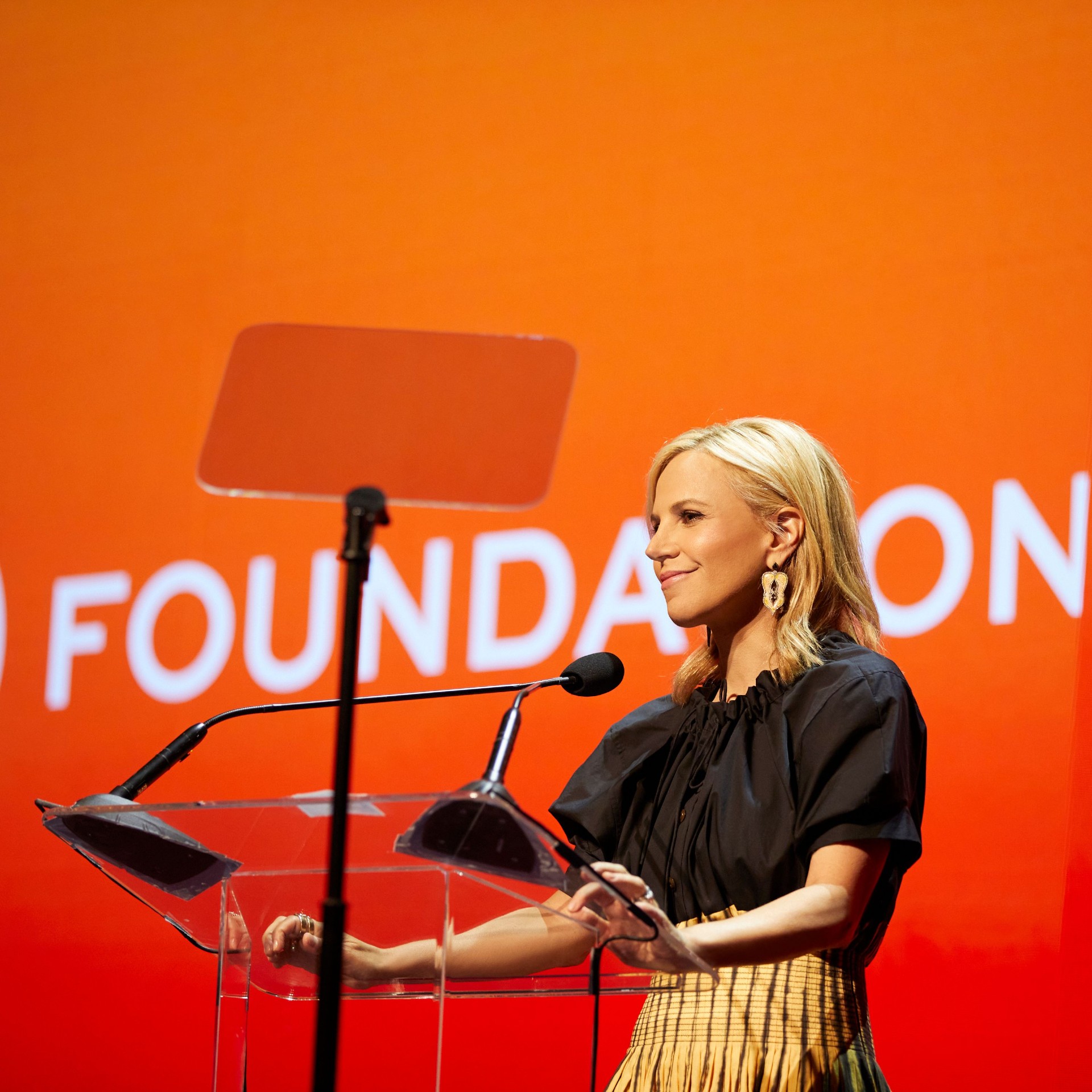 Small Business Spotlight Special: Tory Burch Foundation Fellows
Small Business Spotlight Special: Tory Burch Foundation FellowsThese small business owners share tips they've learned from each other as they navigate the tough role of being a female founder.
By Gabrielle Ulubay Published
-
 Power Players Build on Success
Power Players Build on Success"The New Normal" left some brands stronger than ever. We asked then what lies ahead.
By Maria Ricapito Published
-
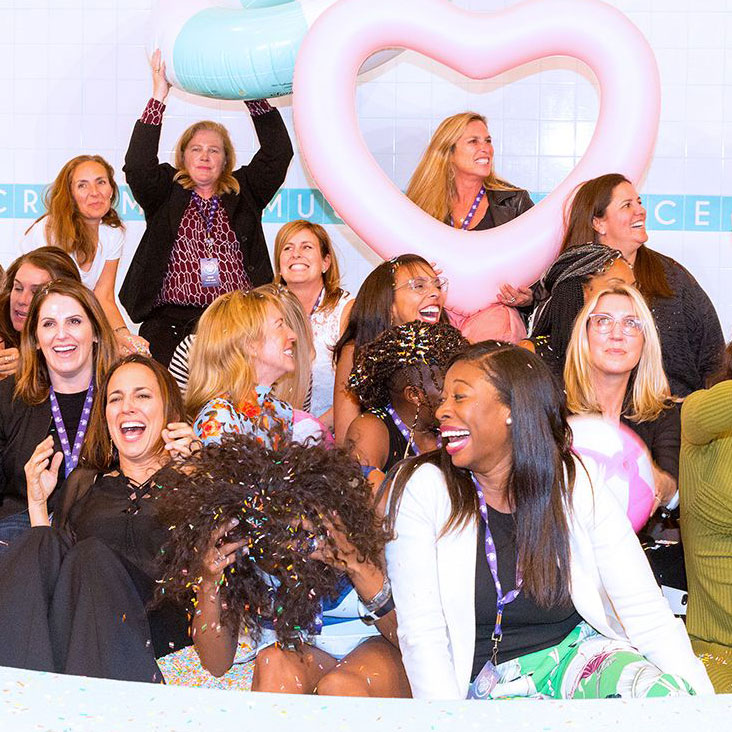 Inside Marie Claire's Second-Annual Power Trip
Inside Marie Claire's Second-Annual Power Trip36 hours of non-stop networking 🙌.
By Colleen Leahey McKeegan Published
-
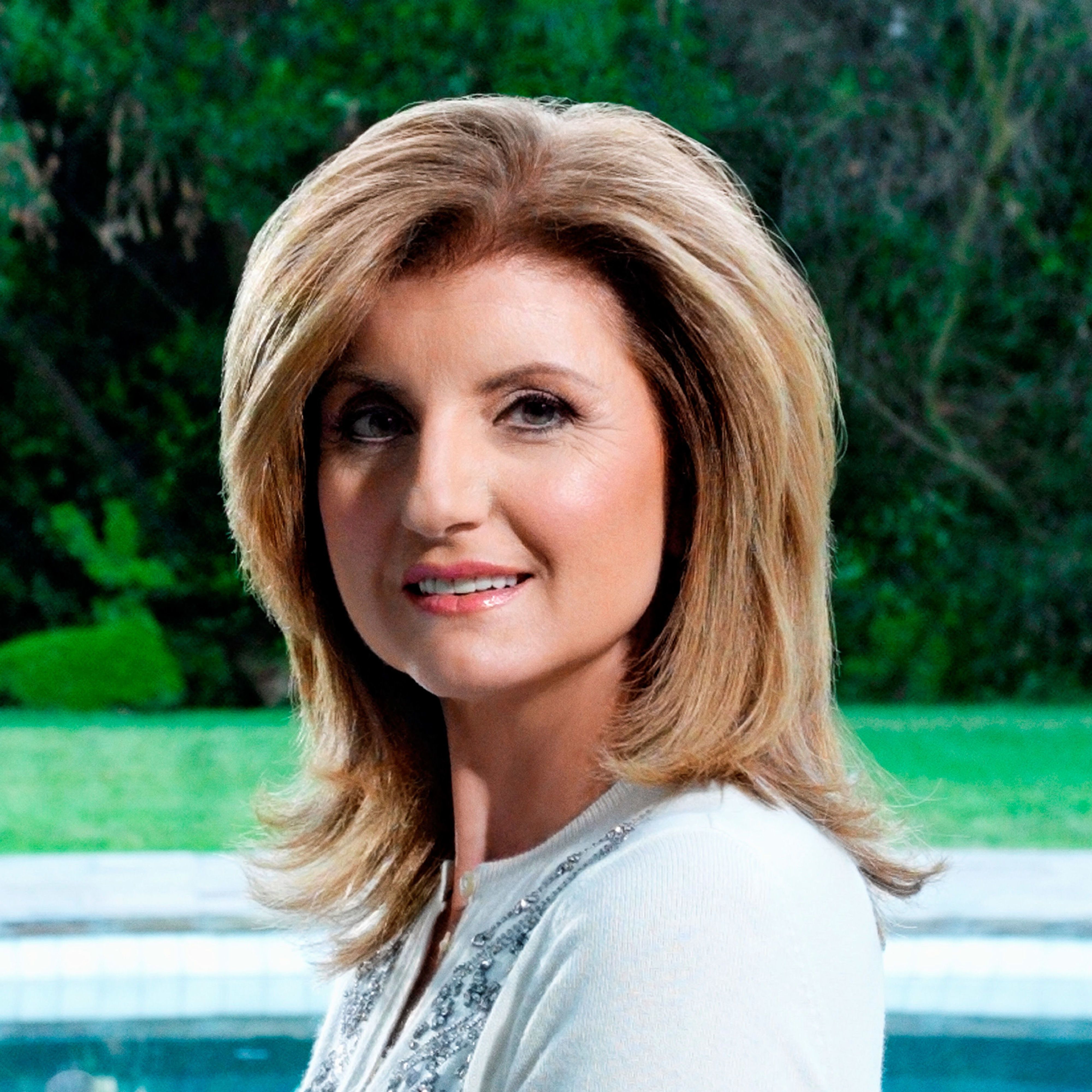 10 Things Arianna Huffington Wished She Knew In Her Twenties
10 Things Arianna Huffington Wished She Knew In Her TwentiesFeatures The influential The Huffington Post founder Arianna Huffington discusses the importance of talking kindly to ourselves, occasionally disconnecting, and handling the harshest criticism.
By Susie Moore Published
-
Are Women Too Emotional at Work?
Now that women make up the bulk of the workforce, should we brace ourselves for more tears at the office?
By Lea Goldman Published
-
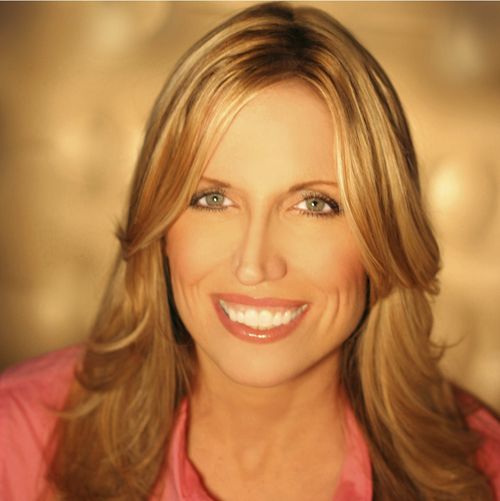 Conan's First Lady of Comedy
Conan's First Lady of ComedyIn the boys' club of late-night shows — where male writers outnumber women by as many as 19 to 1 — Laurie Kilmartin scores as Conan's sole female writer.
By Abigail Pesta Published
-
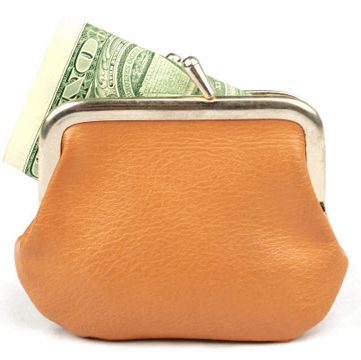 7 Ways to Save Money
7 Ways to Save MoneyHow To A new book offers realistic rules for saving — and spending — it.
By Sarah Wexler Published
-
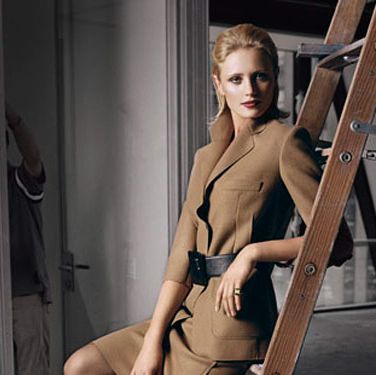 How to...Figure Out if You're MBA Material
How to...Figure Out if You're MBA MaterialFeatures Reasons to do MBA - Ready for an MBA
By Mackenzie Brown Published